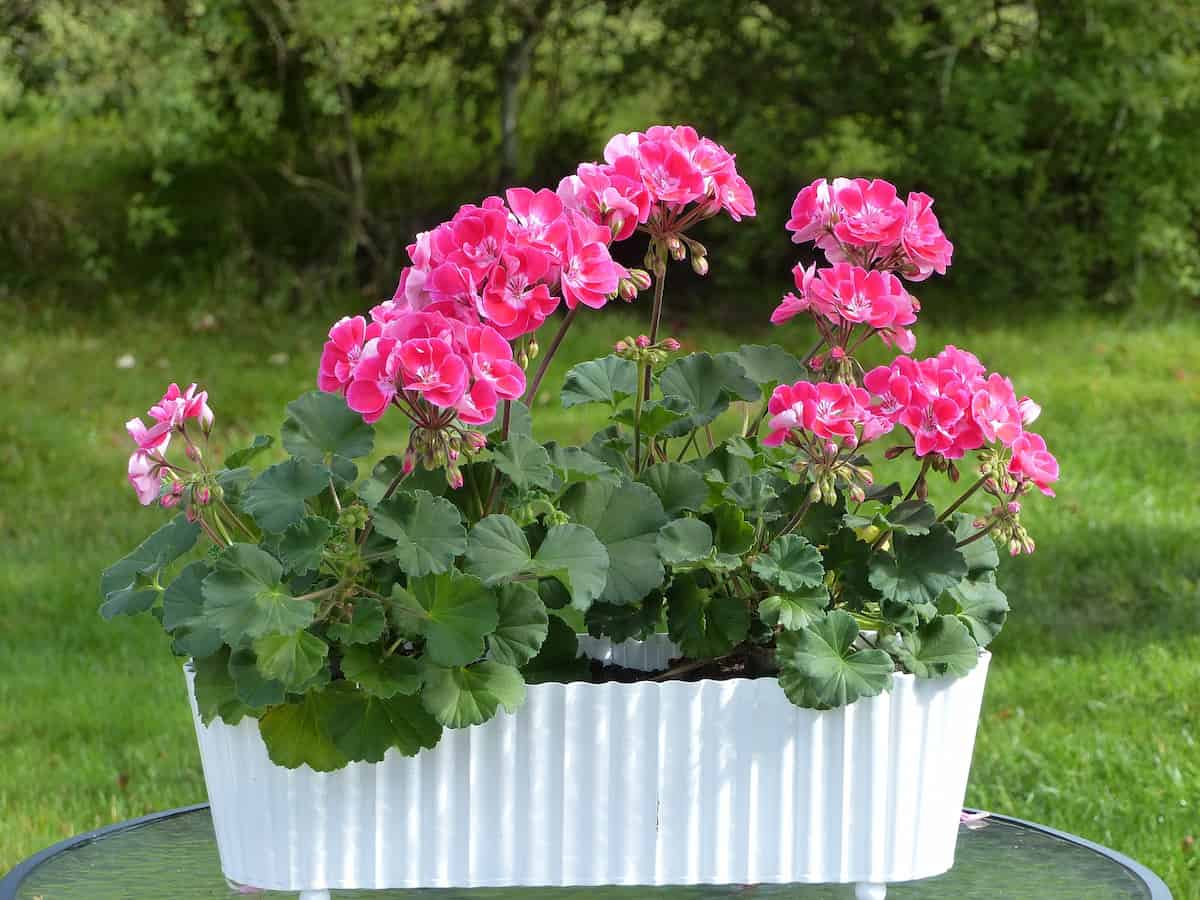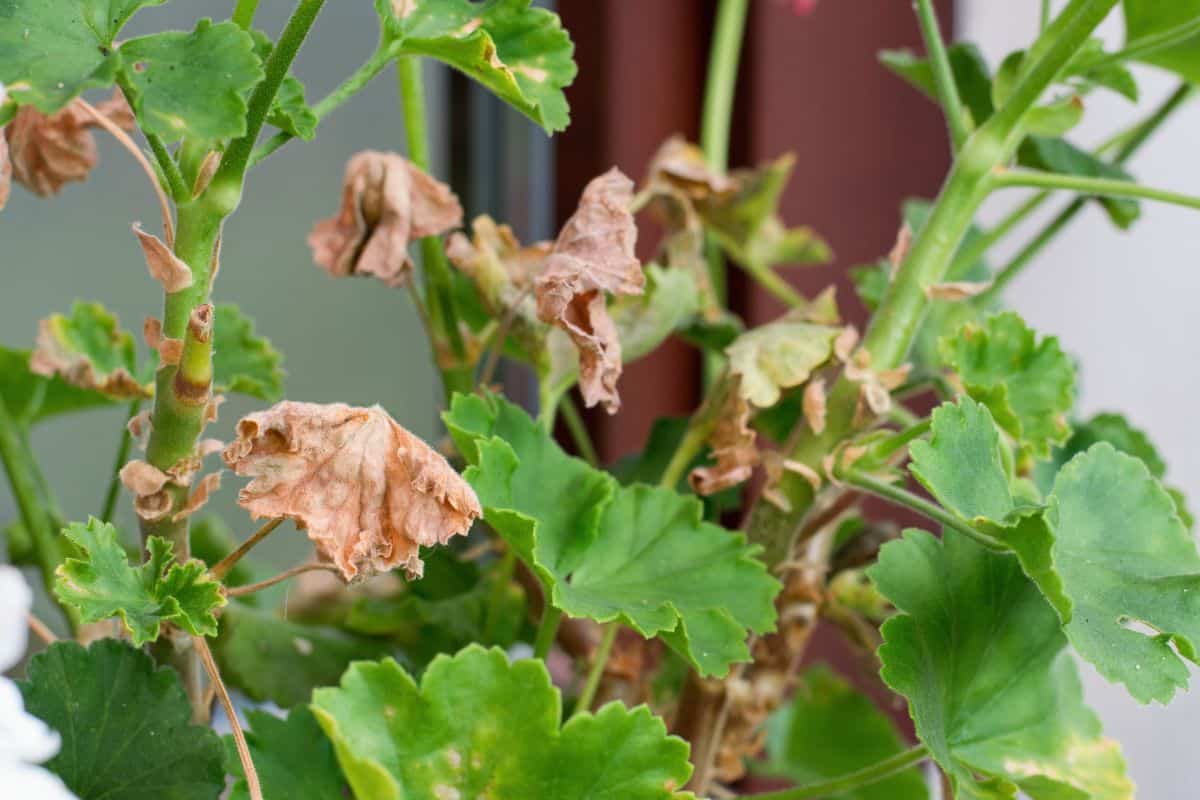What Makes Geraniums a Popular Choice for Gardeners?
Geraniums have become a staple in many gardens due to their vibrant colors, versatility, and adaptability to different environments. These flowers are surprisingly low-maintenance, making them an excellent choice for busy gardeners or those new to plant care. One of the key reasons geraniums are so well-loved is their ability to thrive in a variety of conditions, from full sun to partial shade. They can even tolerate some neglect, making them an ideal choice for those who don’t have a lot of time to dedicate to gardening. But what really sets geraniums apart is their ease of care. Are geraniums easy to grow? The answer is a resounding yes. With a few simple tips and tricks, you can enjoy these gorgeous flowers all season long. Whether you’re a seasoned green thumb or just starting out, geraniums are an excellent choice for adding a pop of color and beauty to your garden or indoor space.
Demystifying Geranium Care: Separating Fact from Fiction
When it comes to geranium care, there are many misconceptions that can lead to confusion and frustration. One of the most common myths is that geraniums require frequent watering and pruning. However, this couldn’t be further from the truth. In reality, geraniums are relatively low-maintenance plants that thrive with minimal care. Are geraniums easy to grow? Absolutely With a basic understanding of their needs, you can enjoy these beautiful flowers without breaking a sweat. Geranium care is surprisingly simple, and by separating fact from fiction, you can unlock the secrets to growing healthy, vibrant geraniums. By understanding the basics of geranium care, you can avoid common mistakes and provide your plants with the right conditions to thrive.
How to Provide the Perfect Conditions for Your Geraniums
Geraniums are adaptable plants that can thrive in a variety of environments, but they do have some specific needs when it comes to soil, light, and temperature. By providing the right conditions, you can encourage healthy growth, vibrant colors, and abundant blooms. When it comes to soil, geraniums prefer well-draining soil with a pH between 6.0 and 7.0. You can achieve this by mixing in organic matter like compost or perlite to improve drainage and fertility. In terms of light, geraniums love full sun to partial shade, depending on the variety. If you’re growing geraniums indoors, place them near a sunny window or use grow lights to supplement natural light. Temperature-wise, geraniums prefer daytime temperatures between 65-75°F (18-24°C) and nighttime temperatures around 55-65°F (13-18°C). By replicating these conditions in your garden or indoor space, you’ll be well on your way to growing thriving geraniums. Are geraniums easy to grow? With the right conditions, absolutely By understanding the specific needs of geraniums, you can create an ideal environment for them to flourish.
The Art of Watering: A Guide to Hydrating Your Geraniums
Watering is a crucial aspect of geranium care, but it’s often misunderstood. Many gardeners assume that geraniums need frequent watering, but this can lead to overwatering, which can be detrimental to the plant’s health. In reality, geraniums prefer well-draining soil and can thrive with infrequent watering. The key is to strike a balance between providing enough moisture and avoiding waterlogged soil. To achieve this, check the soil moisture by sticking your finger into the soil up to the first knuckle. If the soil feels dry, it’s time to water. Water your geraniums deeply, making sure the pot drains well to prevent waterlogged soil. Avoid getting water on the leaves to prevent fungal diseases. Are geraniums easy to grow? With proper watering, absolutely By understanding the importance of soil moisture and frequency, you can provide your geraniums with the right amount of hydration to promote healthy growth and blooming.
Fertilizing for Success: Nourishing Your Geraniums
Fertilization is a crucial aspect of geranium care, as it provides essential nutrients for healthy growth and blooming. Geraniums are heavy feeders and benefit from regular fertilization. A balanced fertilizer with a ratio of 10-10-10 (nitrogen-phosphorus-potassium) is ideal for geraniums. You can fertilize your geraniums every 2-3 weeks during the growing season (spring and summer) and once a month during the dormant season (fall and winter). It’s essential to dilute the fertilizer to half the recommended strength to avoid burning the roots. Are geraniums easy to grow? With proper fertilization, absolutely By providing your geraniums with the necessary nutrients, you can promote healthy growth, vibrant colors, and abundant blooms. Additionally, fertilization can help prevent nutrient deficiencies, which can lead to common problems like yellowing leaves or stunted growth.
Pruning and Grooming: Keeping Your Geraniums Healthy and Thriving
Pruning and grooming are essential aspects of geranium care, as they promote healthy growth, encourage blooming, and maintain the plant’s appearance. Deadheading, or removing spent flowers, is a simple yet effective way to encourage geraniums to produce more blooms. Trimming back leggy stems can also help promote bushy growth and prevent the plant from becoming too sprawling. When pruning, use clean, sharp scissors or clippers to prevent spreading diseases. Are geraniums easy to grow? With regular pruning and grooming, absolutely By keeping your geraniums well-maintained, you can enjoy a vibrant display of colors and a thriving plant that requires minimal care. Additionally, pruning can help prevent common problems like pests and diseases by removing infected or damaged leaves and stems.
Troubleshooting Common Geranium Problems
Despite their hardiness, geraniums can still be susceptible to certain problems. Pests like aphids, whiteflies, and spider mites can infest geraniums, causing damage to leaves and stems. Regularly inspecting your plants and treating infestations promptly can help prevent the spread of these pests. Fungal diseases like root rot and leaf spot can also affect geraniums, often as a result of overwatering. Improving air circulation, reducing humidity, and treating fungal infections with fungicides can help prevent these diseases. Nutrient deficiencies, such as a lack of iron or magnesium, can cause yellowing leaves or stunted growth. Are geraniums easy to grow? With proper care and attention to potential problems, absolutely By being aware of these common issues and taking steps to prevent or address them, you can enjoy a thriving and healthy geranium plant. Additionally, maintaining good hygiene practices, such as disinfecting pruning tools and removing infected plants, can help prevent the spread of diseases and pests.
Conclusion: Why Geraniums Are a Great Choice for Gardeners of All Levels
In conclusion, geraniums are an excellent choice for gardeners of all skill levels due to their hardiness, adaptability, and low-maintenance requirements. With their vibrant colors, versatility, and ability to thrive in various environments, geraniums are an ideal addition to any garden or indoor space. By following the simple care guidelines outlined in this article, anyone can enjoy the beauty and benefits of geraniums. Are geraniums easy to grow? Absolutely With minimal care and attention, geraniums can provide a stunning display of colors and a thriving plant that requires minimal upkeep. Whether you’re a seasoned gardener or just starting out, geraniums are an excellent choice for anyone looking to add some beauty and life to their outdoor or indoor space.







